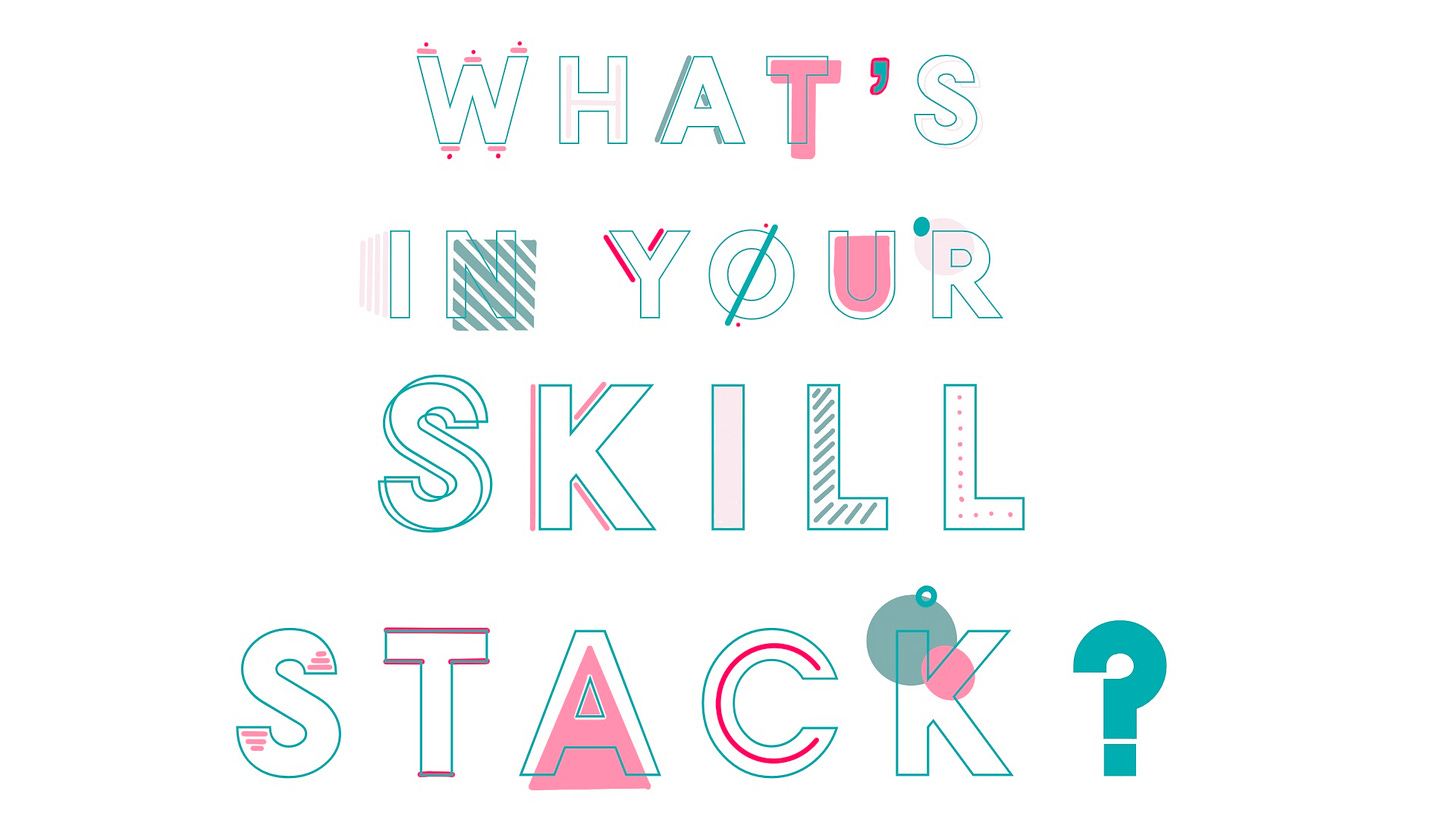What's in your skill stack?
Do you know who Scott Adams is?
How about Dilbert?
When I asked those questions to the seniors I work with, I got blank stares for both questions. Youth! 😬
At one point in time, Dilbert was one of the most successful cartoon strips in the world being run daily in almost 2,000 newspapers across 65 different countries. (the cartoon was recently cancelled- but that’s not what we’re here for today)
Today, we’re here for this quote from the cartoon’s creator, Scott Adams:
“I am a famous syndicated cartoonist who doesn’t have much artistic talent, and I’ve never taken a college-level writing class. But few people are good at both drawing and writing. When you add in my ordinary business skills, my strong work ethic, my risk tolerance, and my reasonably good sense of humour, I’m fairly unique. And in this case, that uniqueness has commercial value”.
Scott Adams
Scott goes on to talk about the concept of skill stacking.
It’s the idea that one way to approach your life is to choose to try to be the very best at one particular thing. This is an extreme form of specialization. Not many people go this route because there’s not a lot of room available at the top. And, it requires you to be very, very good in order to stand out.
The second is the approach that Scott himself took—find 3-5 complementary skills that you can be “good enough” in and bring them together in a way that now makes you nearly one of a kind.
That’s what we’re looking at this weekend….
What’s in your skill stack?
Skill stacking applies to you whether you’re in a career or in need of a career.
Option 1 (you already have a job)
Think about the job you do right now. There are likely one or two specific skills that everyone else in the same field are also proficient in. These skills are basically your entry ticket into the field. They show everyone else you belong.
Now, think about some of the problems, tasks, or other issues that come up in your day to day. There are likely a number of additional technical skills that that you could add to your skill stack that will help you elevate your performance. You don’t need to be the best in these complementary skills but you do need to move into the top 25%.
Finally, you have a final layer of skills worth considering—the skills that don’t even seem connected to what you do but that act as a type of supercharger to the skills you already possess. These are the skills that will make you stand out.
This option works even if you’re an extreme specialist. What made Michael Jordan so unique is that he was an extreme specialist who was not only in the top 1% of what he did but then added in a range of complementary but seemingly unrelated skills that propelled him into the realm of cultural icon (acting, speaking, emotional intelligence, trash talking, leadership, etc.)
Option 2 (you need a job or want a new job)
I love this scenario. I did this with a group of seniors earlier this week and it’s a great way to step back and look at yourself as a collection of interests and skills. This is more of the Scott Adams approach - look at the intersection of your skills and then look at what projects you might pursue.
Everyone should try this at some point. Step back from what you’re doing and look only at yourself as a collection of skills and interests. For now, don’t worry about how good or bad you are at any of them, just find 5-10 things you are either deeply interested in or possess some degree of skill in.
Here’s a few I came up with:
communications
public speaking/presentations
breakdancing
writing
videography
learning/teaching
handlettering
Once you have your skills, start looking for possible projects or jobs that might exist at the intersection of some or all of your list. It’s not a perfect science but the thing I like about it is that it will get you thinking beyond the standard career catalog of choices most people get stuck in. It will also help you see yourself differently.
Give it a try this week and think about the skills in your stack!
Keep Asking,
Kyle



